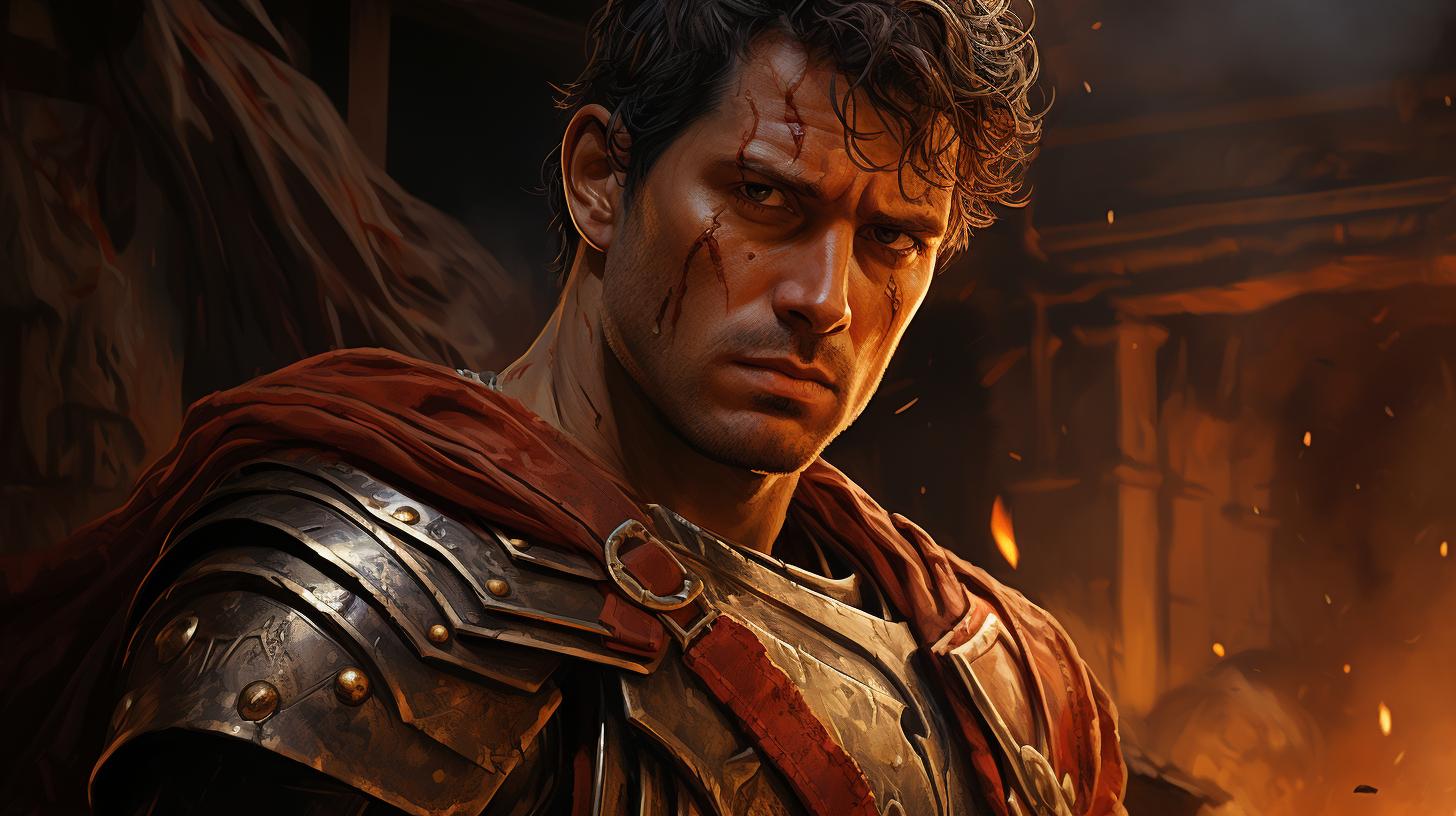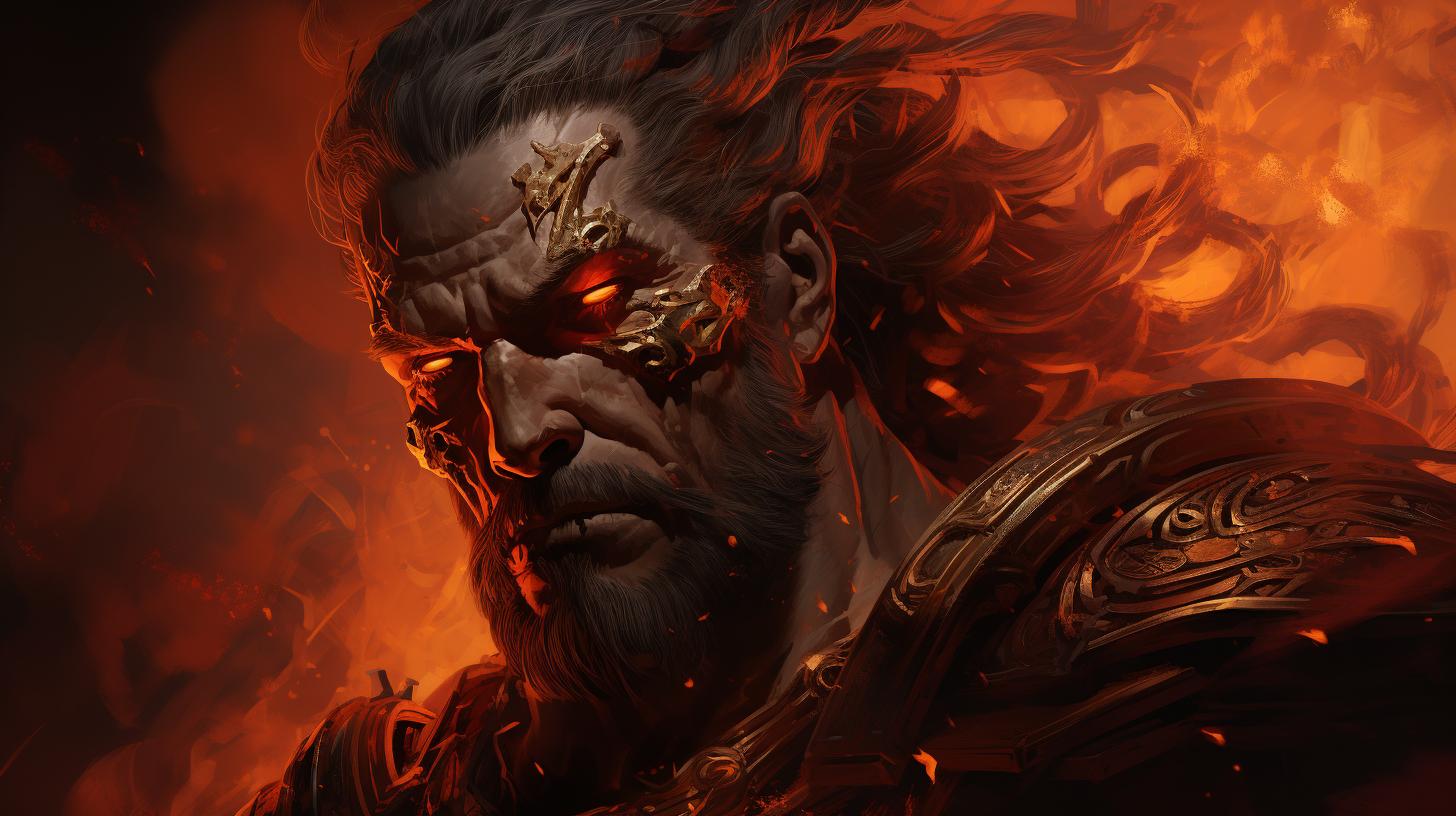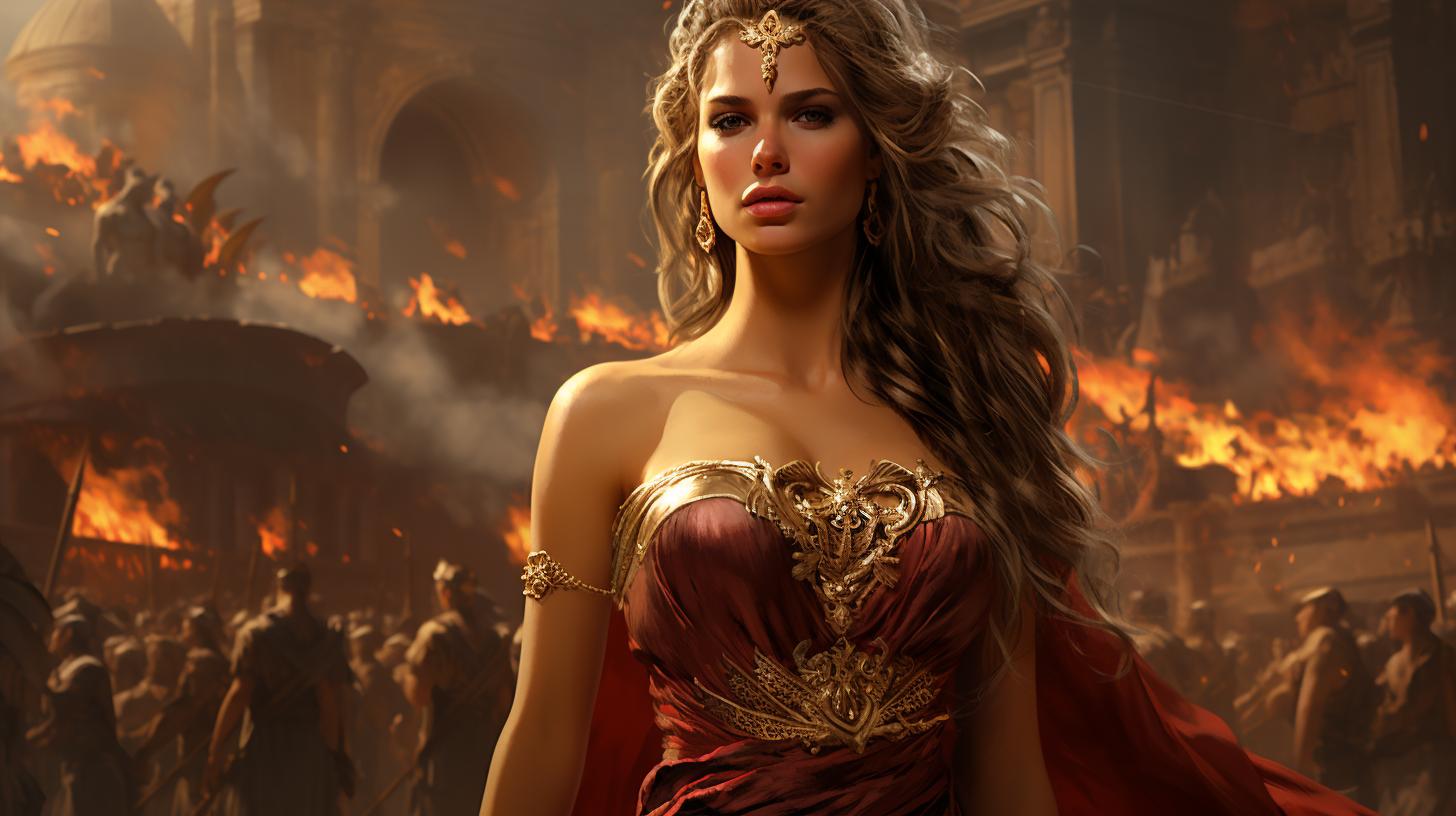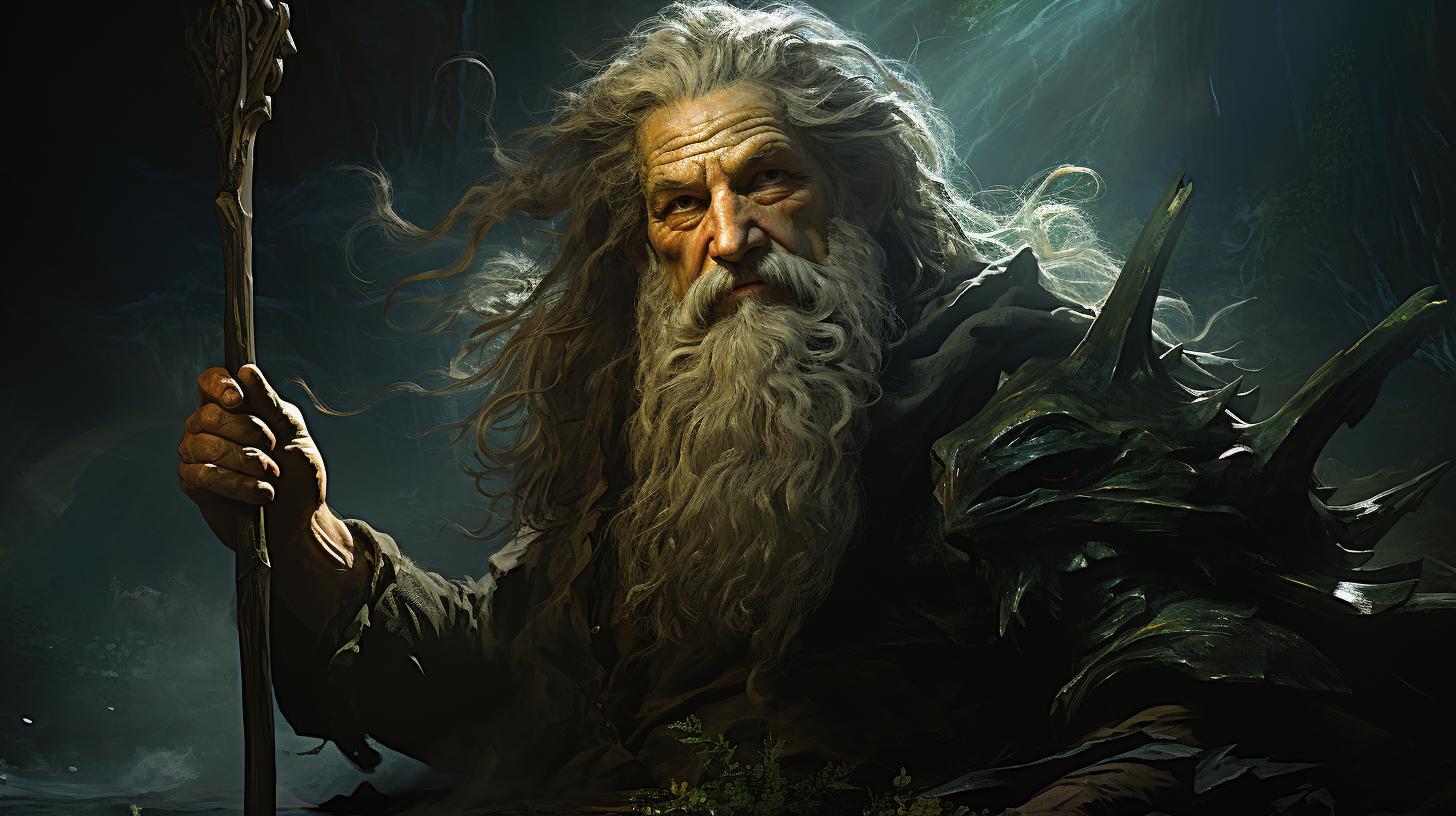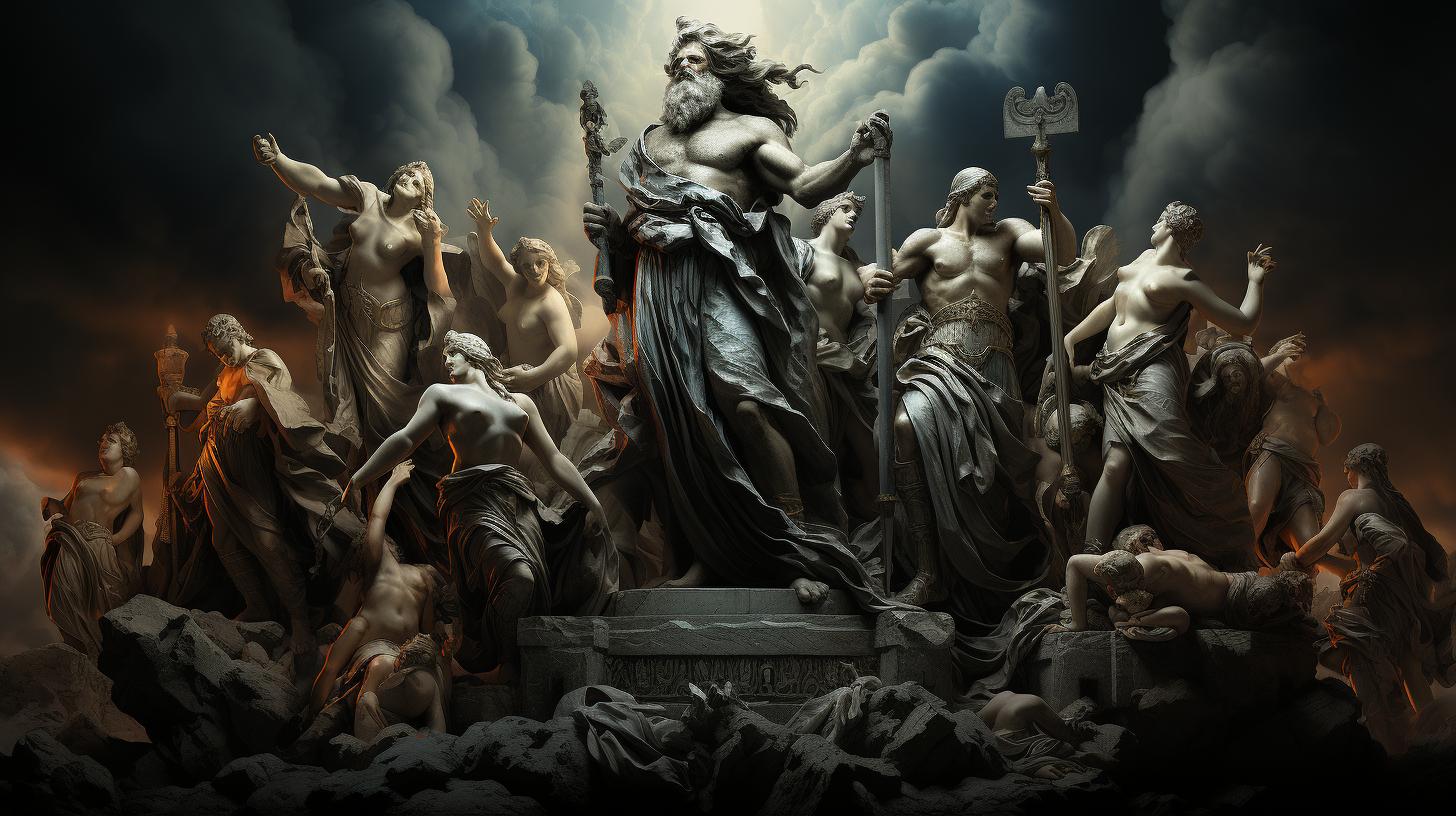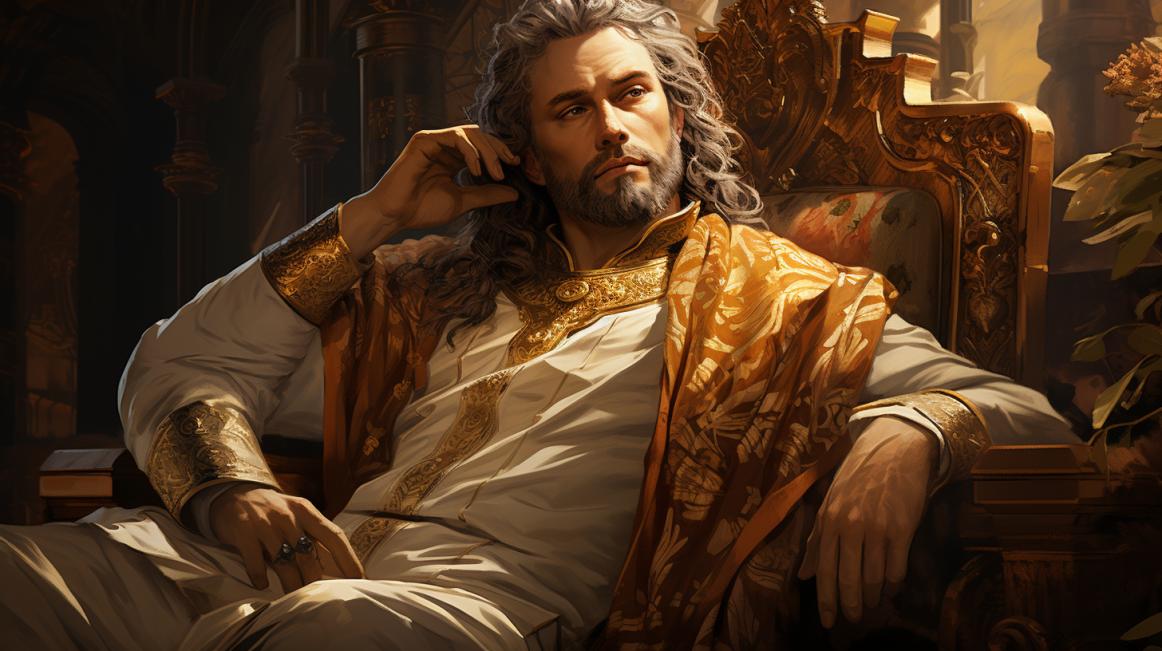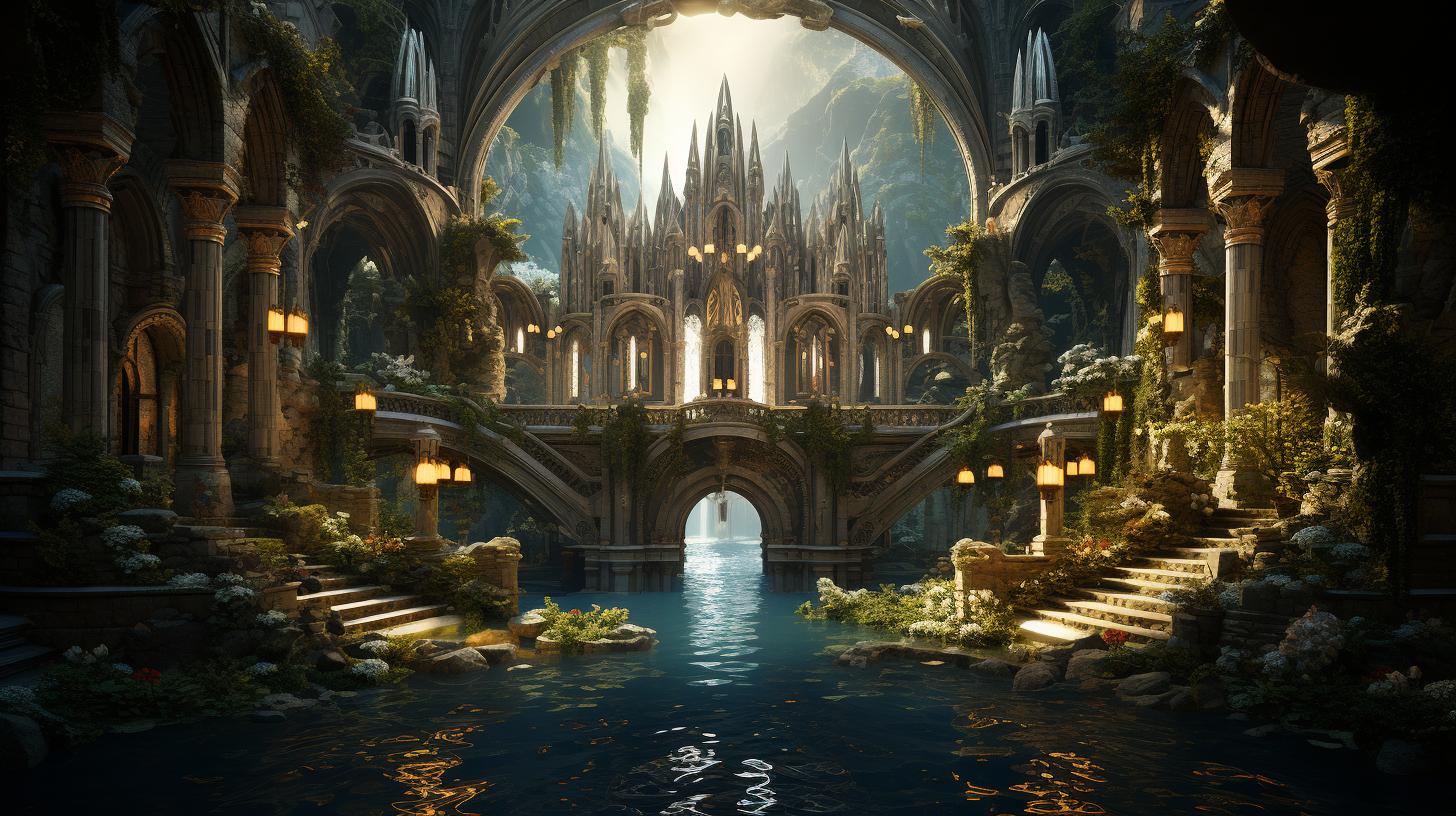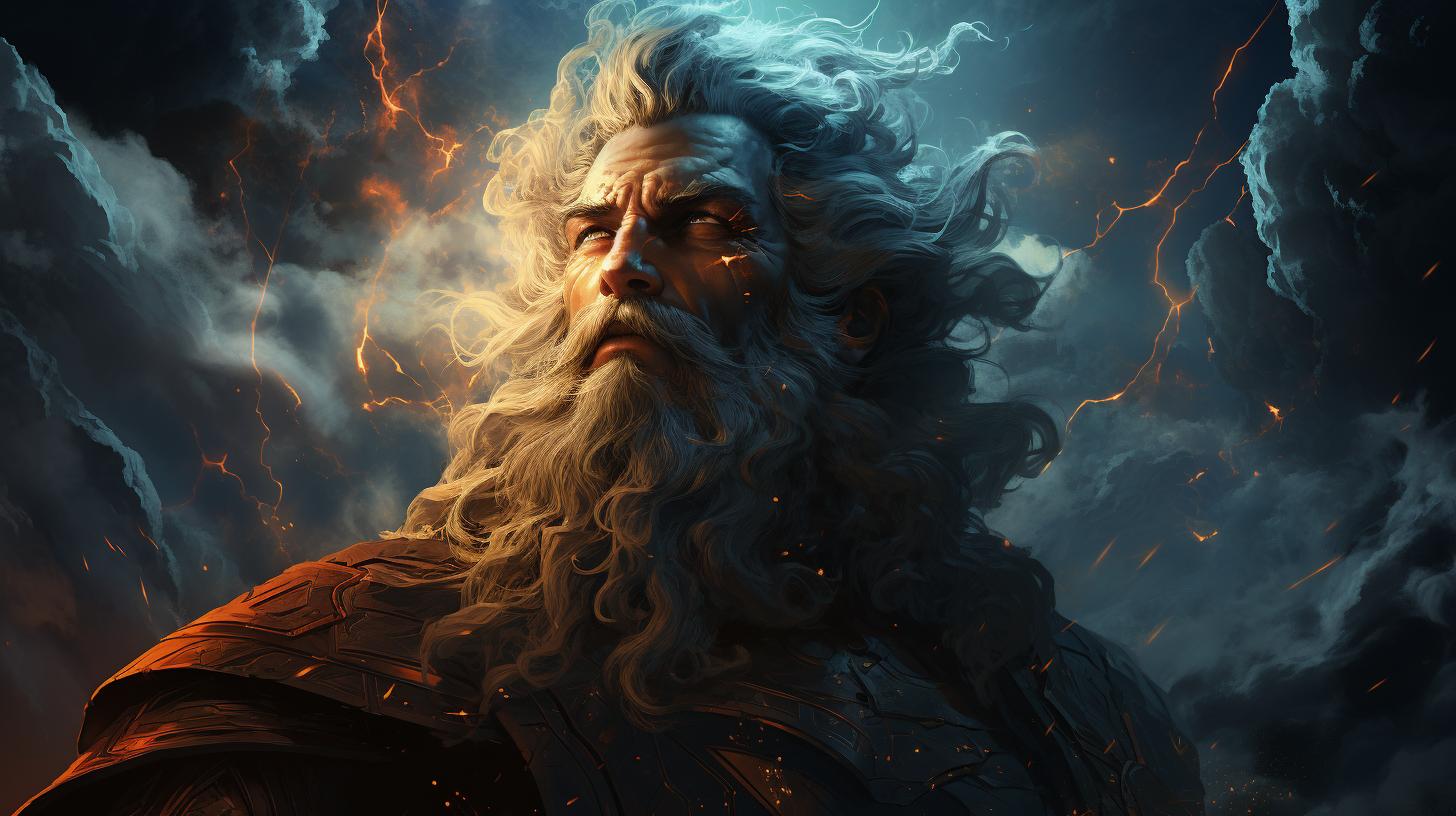Hector in Greek Mythology: The Legendary Trojan Warrior of Troy
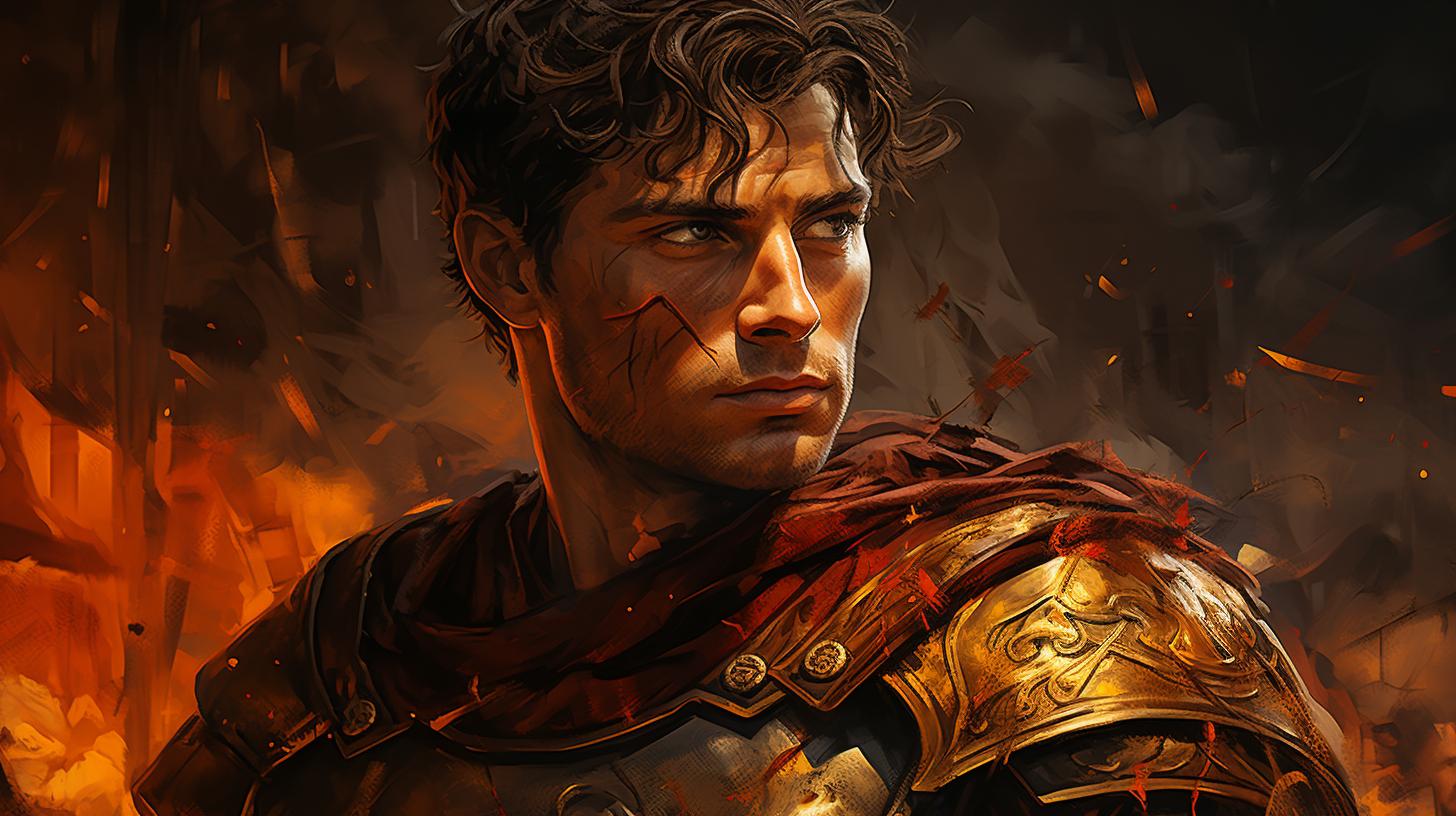
The story of Hector in Greek mythology revolves around his role as a Trojan prince and warrior during the Trojan War. He was a key figure in the defense of Troy against the Greeks.
Hector’s character in the Iliad, described by Homer, portrays him as a noble and skilled fighter, deeply respected by his people. His epic battle with Achilles, resulting in his defeat and death, had significant consequences for both sides of the conflict.
Hector’s legacy and symbolism continue to be explored and interpreted in modern literature, art, and popular culture.
The Story of Hector in Greek Mythology
The story of Hector in Greek mythology delves into the life and exploits of this legendary figure in the Trojan War. Known as the Trojan prince and warrior, Hector played a significant role in the defense of Troy against the Greeks.
The Trojan Prince and Warrior
Hector, the eldest son of King Priam and Queen Hecuba, was renowned for his bravery and strength. As a prince of Troy, he held a position of great importance and respect within the city.
Hector’s noble lineage and physical prowess made him a formidable figure among his people.
Hector’s Role in the Trojan War
During the Trojan War, Hector emerged as a key leader for the Trojan forces. He displayed remarkable skills in battle, becoming the champion and protector of Troy. It was Hector’s unwavering commitment to defend his city that earned him admiration and honor among his fellow Trojans.
Hector’s Family and Relationships
Aside from his role as a warrior, Hector cherished his family deeply. He was married to Andromache and had a son named Scamandrius, also known as Astyanax. Despite the demands of war, Hector remained a devoted husband and father, displaying a compassionate and affectionate nature.
Hector’s Epic Battle with Achilles
The epic battle between Hector and Achilles was a pivotal moment in the Trojan War, a clash that would shape the outcome of the conflict and leave a lasting impact on both sides.
This section explores the feud between Hector and Achilles, the intense duel that ensued, and the profound consequences of Hector’s death.
Feud between Hector and Achilles
The feud between Hector and Achilles had deep roots in the Trojan War. Achilles, a formidable Greek warrior, was driven by a thirst for vengeance after his close companion Patroclus was killed by Hector.
Achilles held Hector responsible, thus setting the stage for a fierce confrontation.
The Duel and Hector’s Defeat
In a climactic showdown, Hector and Achilles faced off in a duel that would decide their fate. Despite relentless resistance, Hector succumbed to Achilles’ superior skill and strength. The mighty Trojan prince met his ultimate defeat, struck down by Achilles’ spear, a devastating blow that ended their battle.
The Consequences of Hector’s Death
Hector’s death proved to be a turning point in the Trojan War. The loss of their beloved prince dealt a heavy blow to the morale of the Trojan forces, while Achilles’ triumph bolstered the Greeks’ resolve.
Hector’s absence left a void in the Trojan defense, leading to further disarray and eventual downfall.
Hector in the Iliad and Greek Epics
Hector’s presence in Homer’s Iliad provides insights into his characterization and the significant role he plays in the Greek epics. This section explores his portrayal in the Iliad, his heroic deeds and influence, and comparisons with other renowned Greek heroes.
Hector’s Characterization in Homer’s Iliad
In Homer’s Iliad, Hector is depicted as a complex character with noble qualities and a sense of duty. He is a devoted son, husband, and father, respected for his leadership skills and bravery.
Homer portrays him as a worthy opponent and a formidable adversary to the Greeks.
Hector’s Heroic Deeds and Influence
Throughout the Iliad, Hector’s heroic deeds and leadership on the battlefield earn him accolades and admiration. He leads the Trojan forces with valor and resilience, inflicting heavy losses on the Greek army.
His actions inspire his troops and contribute significantly to the defense of Troy in the face of the Greek onslaught.
Comparisons with Other Greek Heroes
When comparing Hector to other legendary Greek heroes, notable contrasts and similarities emerge. While he shares the audacity and heroism of figures like Achilles and Ajax, Hector distinguishes himself through his sense of honor, compassion, and his dedication to his family and people.
These contrasting qualities make him a unique and relatable character within the realm of Greek mythology.
Hector and the Gods in Greek Mythology
In Greek mythology, Hector’s interactions with the gods played a significant role in shaping his fate and the outcome of the Trojan War. These interactions showcased the complex relationship between mortals and immortals, with both divine assistance and obstacles testing Hector’s resolve.
Interactions between Hector and the Gods
Throughout the Trojan War, Hector found himself engaged with various deities, each offering their own influence and guidance. The gods often intervened in battles and conflicts, either favoring or opposing Hector’s endeavors.
For instance, Apollo, the god of music and prophecy, supported Hector, while Athena, the goddess of wisdom and war, stood against him.
Divine Assistance and Obstacles for Hector
Hector received occasional help from the gods, bolstering his strength and abilities on the battlefield. Divine intervention gave him courage and skill, enabling him to lead the Trojan forces effectively.
However, Hector also faced obstacles created by gods who sought to hinder his success. These divine interventions created additional challenges for Hector in his quest to defend Troy.
Hector’s Beliefs and Role in the Divine Order
As a devout adherent to the beliefs of ancient Greece, Hector held steadfast faith in the divine order and respected the roles of the gods. He acknowledged their power and authority, often seeking their favor through prayers and sacrifices.
Despite the challenges and obstacles presented by the gods, Hector maintained his unwavering dedication to his people and the gods’ influence on their lives.
Hector and the Fate of Troy
Hector, as the greatest Trojan warrior, played a significant role in shaping the fate of Troy during the epic Trojan War. His military prowess and leadership greatly impacted the outcome of the conflict, leaving a lasting legacy and symbolism in Greek mythology.
Hector’s Impact on Troy’s Fate
Hector’s exceptional skills as a warrior brought glory to Troy, instilling confidence and hope among his fellow Trojans. With his strategic brilliance, he successfully defended the city against relentless Greek attacks, thwarting their advances and fighting valiantly till his last breath.
As the eldest son of King Priam and Queen Hecuba, Hector’s lineage and status as a prince made him a symbol of strength and heroism for the Trojans. His unwavering determination to protect his people earned him their admiration and unwavering support throughout the war.
The Trojan War and the Fall of Troy
The Trojan War, a legendary conflict believed to have taken place in the late Bronze Age, was triggered by Paris, Hector’s younger brother, who abducted Helen, the wife of Menelaus, the king of Sparta.
This act sparked the wrath of the Greeks, leading to a decade-long war that ultimately culminated in the fall of Troy.
Hector’s valiant efforts on the battlefield were instrumental in prolonging the war and preventing the Greeks from breaching the city’s defenses.
However, despite his heroic feats, Troy’s fate was sealed when the Greeks devised a plan to infiltrate the city using the infamous Trojan Horse.
The cunning ruse led to the downfall of Troy as the Greeks emerged from the wooden structure, opened the city gates, and launched a devastating attack.
Despite Hector’s resistance and numerous heroic acts, including his legendary battle with Achilles, Troy ultimately succumbed to the Greek onslaught, leading to its destruction and the enslavement of its people.
Hector’s Legacy and Symbolism in Mythology
Hector’s character and deeds continue to be celebrated in Greek mythology for their nobility, courage, and unwavering loyalty. His tragic fate elicits both admiration and sympathy, highlighting the complex nature of war and its devastating consequences.
Hector’s story serves as a cautionary tale, exemplifying the fragility of mortal life in the face of war and the power of fate. His valor and sacrifices inspire future generations and serve as a reminder of the enduring human spirit in times of adversity.
Furthermore, Hector’s legacy extends beyond his role in the Trojan War. His depiction in various artistic and literary works, from ancient times to modern interpretations, highlights his enduring significance as a legendary figure in Greek mythology.
Modern Interpretations and Adaptations
Modern interpretations and adaptations of Hector’s story have found their way into various forms of art, literature, and popular culture. They offer different perspectives and shed new light on this legendary figure from Greek mythology.
Hector in Literature and Art
- Many renowned authors have explored Hector’s character and his role in the Trojan War in their literary works. Writers like Jean Racine and Christopher Marlowe have portrayed him as a tragic hero, torn between family obligations and the demands of warfare.
- Hector’s noble qualities and his final battle with Achilles have been artistically depicted by renowned painters throughout history.
Famous artworks, such as Jacques-Louis David’s “The Death of Hector,” capture the emotional intensity of this pivotal moment.
Hector in Film and Pop Culture
- Hector’s story has also made its way to the silver screen, with movies like Wolfgang Petersen’s 2004 film “Troy,” where actor Eric Bana portrayed Hector. The film offers a modern portrayal of the epic duel between Hector and Achilles.
- Hector’s character and themes from Greek mythology have become popular in contemporary pop culture as well.
From video games to graphic novels, his heroic deeds and tragic fate continue to captivate audiences worldwide.
Contemporary Lessons from Hector’s Story
- Hector’s story carries timeless lessons that resonate with modern audiences. His unwavering commitment to his family, his bravery in the face of adversity, and the complexities of war and honor all provide opportunities for reflection and introspection.
- Hector’s character can inspire individuals to hold onto their principles, make difficult choices, and exhibit courage in the face of challenges.
His story serves as a reminder of the complexities of human nature and the choices we make in life.
In conclusion, Hector’s story has not only left a significant impact on the ancient world but continues to inspire and fascinate audiences in modern times through its portrayal in literature, art, and popular culture.
.

